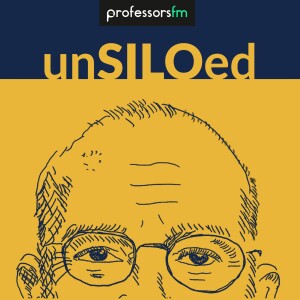
We all know the diseases associated with aging: cancer, heart disease, dementia. But what if they are just symptoms of and the disease is aging itself? How would this view affect our approach to medical research? While the last few centuries have extended human lifespan by decades, our healthspan has not kept up. New scientific insights are pointing toward a better understanding of the causes of aging and perhaps may lead to the extension of our healthspan.
Sue Armstrong explores these topics and more in her latest book, “Borrowed Time: The Science of How and Why We Age.” She is a science writer and broadcaster. As a foreign correspondent based in Brussels and then South Africa, Sue worked for outlets such as New Scientist magazine and the BBC World Service radio.
She has worked as a consultant writer for the World Health Organization and UNAIDS for more than 25 years, and has worked extensively on reporting on HIV and other science and health topics over the years.
Sue joins Greg to discuss senescent cells, how the immune system degrades as we age, sitting as the new smoking and Alzheimers.
Episode Quotes:Aging as a disease
So there's quite a lot of things we can do to ameliorate aging. But as long as it's seen as a completely natural process, there's no money in it. The FDA doesn't see it as a disease. It's not something that is recognized as something we should be curing.
Extending life & the thesis of her latest book
What I was interested in doing was exploring the biology of aging and what we could do to improve the health span while we were alive, rather than extend it into immortality.
On working in biology
There are absolutely no quick fixes, but what's fascinating about biology is the way it does something and it'll compensate in some other way and it finds ways to run things - it's so intricate. It's just wonderful. That's what I find so exciting about writing about it.
Recommended Resources:
- George Williams (philanthropist) - Wikipedia
- Disposable Soma Theory of Aging
- Biosphere 2
Guest Profile:
- Professional Profile at Mosaic Science
- Professional Profile at Watson, Little Ltd
- Sue Armstrong on LinkedIn
- Sue Armstrong on Twitter
Her Work:
- Articles in NewScientist
- Article in Science Focus
- p53: The Gene that Cracked the Cancer Code
- Borrowed Time: The Science of How and Why We Age
More Episodes
Create your
podcast in
minutes
- Full-featured podcast site
- Unlimited storage and bandwidth
- Comprehensive podcast stats
- Distribute to Apple Podcasts, Spotify, and more
- Make money with your podcast
It is Free
- Privacy Policy
- Cookie Policy
- Terms of Use
- Consent Preferences
- Copyright © 2015-2024 Podbean.com







